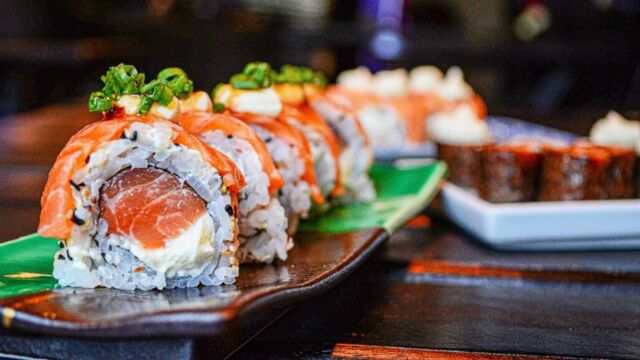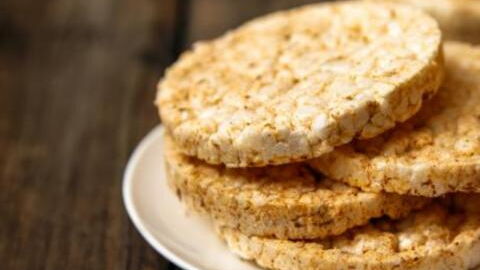Eating properly can be harder than you think. Avoiding products that are too fatty, too sweet or too salty means cutting out a considerable number of foods sold in supermarkets. Sometimes, even products we think are good for our health turn out to be high in calories or packed with harmful substances.
Discover our latest podcast
Sushi, the calorie bomb
It's 2023, and we've all known for a long time that burgers, incredible as they are, don't have to be eaten every day. So what can you order for a change? How about sushi? After all, sushi contains fish, and fish is good for you.
The problem is that sushi isn't just made up of fish, but also other accompaniments such as avocado, ginger and rice! And not just any rice: vinegared rice, vigorously soaked in soy sauce. The result: sushi has far more calories than you might think.
In her book, Eat To Lose, Eat To Win, Dr. Rachel Beller claims that sushi is just as calorific as burgers. Well, the reality is a little more complex, but according to Marie Claire, a dozen 6 salmon sushi are equivalent to 480 kcal, or the calorie intake of a Quater Pounder (500 kcal).
Read more:Here is why you should remove stock cubes from your cupboards and what you can use instead
Surimi sticks packed with additives
Thanks to marketing, we associate everything that comes from the sea with healthy food. Not necessarily with good reason. This is true of sushi, as we've just seen, but also of surimi: those white fish sticks.
A bit like sausages, no one knows exactly what's in them, but that should tip you off: surimis do contain crab, but in small quantities (they must contain at least 30% crabmeat to qualify for this designation).
On the other hand, they contain numerous additives such as polyphosphate, which could lead to various health problems when consumed in excess (cardiovascular disease, osteoporosis, etc.), glutamate, sugar and salt in large quantities. So no, surimi isn't exactly a healthy partner.
Light" sodas
'If you're on a diet, don't drink Pepsi'. We all remember this line from Back to the Future 2, a film in which Marty McFly, worried about his figure, asks to be served a Diet Pepsi, i.e. a sugar-free Pepsi.
Of course, Diet Pepsi, Diet Coke and other similar sodas contain no sugar, but that doesn't automatically make them healthy. To replace these famous white grains, their manufacturers use other substances that are not necessarily better for your health, such as aspartame... A substance 'possibly carcinogenic', as WHO reminded us in a recent press release.
In an interview with Le Parisien, Dr. Jimmy Mohamed declared:
By tricking the brain, these fake sugars activate the reward circuit but do not stimulate the production of the satiety hormone (leptin). As a result, they encourage you to eat more, which leads to the opposite of the desired effect.
Prepared salads
Adding a little greenery to your plate is generally a very good idea. Salads bring nothing but benefits: fiber, vitamins, minerals, antioxidants... But the prepared salads you find in supermarkets are often sold with an unhealthy dressing and a few slices of cold meats.
All the benefits provided by salad then become negligible, fortunately, you can get around this problem by using your own olive oil and favoring 'those containing vegetables other than lettuce, such as kale, Brussels sprouts, broccoli, to increase the nutritional density', as Insider advises.
Read more:Save hundreds of pounds on grocery bills by going vegetarian
Vegan sausages and vegan meat in general
As we all know, eating too much meat is bad for your health. As a result, a growing number of people are turning to vegetarian and even vegan products. For some years now, 'vegan sausages' have been appearing on the shelves.
On paper, these 'meat substitutes' represent an ideal alternative to meat, and it's true that their taste quality has greatly improved. We've come a long way from the disgusting soya steaks of fifteen years ago! The problem is that to replace the taste of meat, their manufacturers don't skimp on additives, rather like diet sodas. According to Dr. Cocaul:
Their salt content and caloric intake are sometimes too high, with consequent additions of fat to make the product more melt-in-the-mouth." He adds: "What's more, in order to be textured a little like meat and evoke its flavor, industrial imitation meats are ultra-processed products stuffed with additives.
But are vegan sausages bad for your health? Studies are lacking on this subject, but if you want some advice: scan the food labels carefully before buying a product of this kind. The shorter the list, the less processed these products are.
Read more:This is the exact number of coffees you should drink a day in order to stay healthy
This article has been translated from Gentside FR.
Sources used:
Marie Claire: Les sushis plus riches en calories que les hamburgers ?
SaveTheGreen: Le surimi : vraiment mauvais ?
World Health Organization: Aspartame hazard and risk assessment results released
Le Parisien: Boissons light : mieux vaut les éviter pour garder la santé
Insider: 5 'health' foods that you probably don't realize are ultra-processed, according to a dietitian
Le Parisien: Santé : faut-il consommer de la «viande» végétale?















